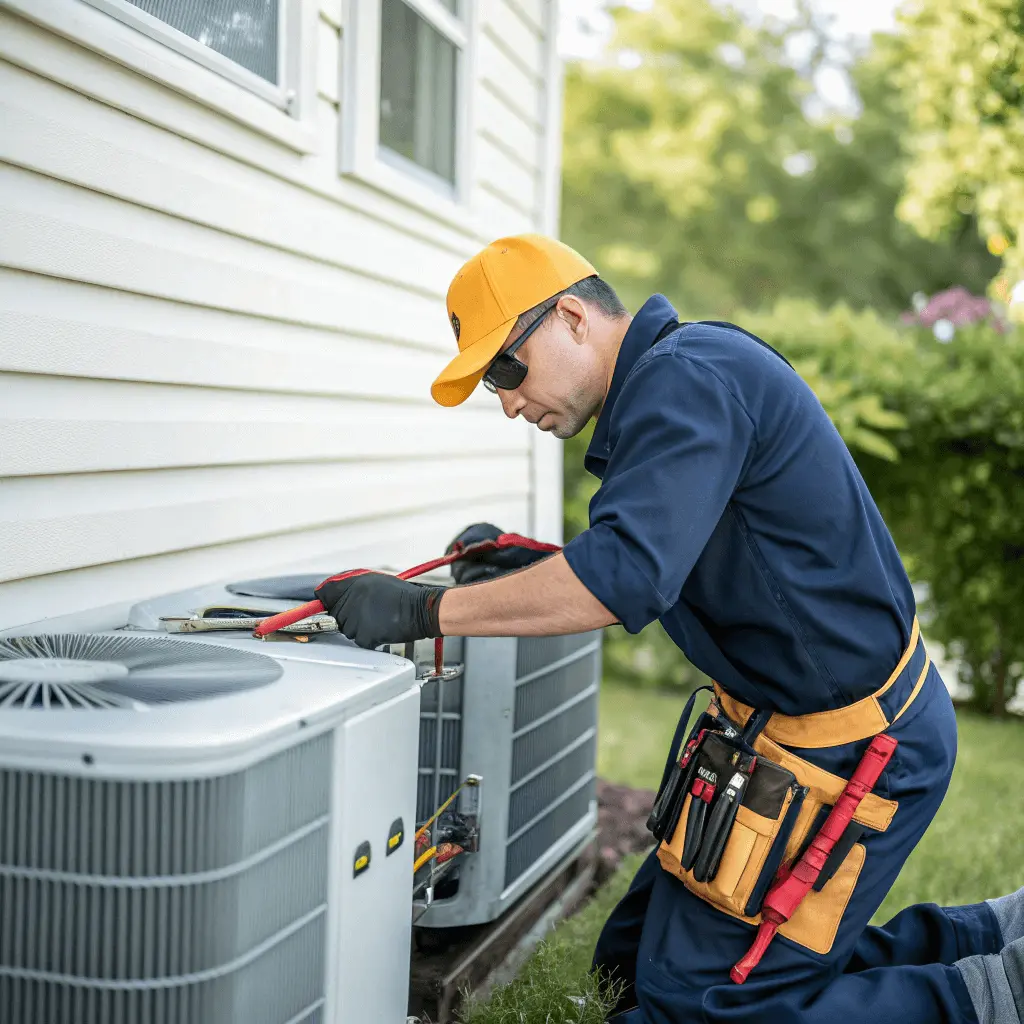Heating, ventilation, and air conditioning systems quietly hum to make homes comfortable year-round. But like any appliance run daily, it ceases to be effective and reliable if not serviced. HVAC service is more than preventing breakage; it also protects indoor air quality and controls energy costs. Maintenance servicing ensures optimal equipment life, reduces emergency service calls, and ensures performance through periods of severe weather fronts. Neglecting maintenance usually ends up costing much more than maintenance itself.
Annual Maintenance is the Norm
Home HVAC systems require at least one service per year in order to continue to be reliable. Ignoring routine maintenance eventually reduces system lifespan and increases energy costs. With routine HVAC maintenance, you are bale to detect worn parts before they turn into major issues. It also preserves warranty coverage, which most manufacturers permit claims to be valid, so homeowners never pay expensively for disagreements when surprise breakdowns happen.
Twice-Yearly for Heavy Use
Houses in areas with cold winters and hot, long summers need more upkeep. Heating and cooling systems are at their best with a six-month service tune-up. Air conditioners need pre-summer maintenance on coils, drain lines and refrigerant. Fall is the time to have furnaces and heat pumps serviced so they can be ready for use all year. In such places, avoiding seasonal repair often results in expensive repairs and mid-season breakdowns.
Filter Changes Set the Rhythm
Homeowners don’t realize how significantly air filters affect efficiency and air quality. A dirty filter reduces airflow, lowering system efficiency. Filters must be replaced at least every three months and checked monthly. Replacement is required more often in homes with smokers, pets, or people with allergies. Clean filters prevent dust in coils and ducts, conserving long-term efficiency loss.
Commercial Systems Require More Frequent Service
Commercial HVAC systems operate under heavier loads compared to residential units. Most require quarterly maintenance to handle constant use and variable occupancy patterns. Businesses that ignore this schedule often face sudden failures that disrupt daily operations. Preventive maintenance for commercial setups also lowers utility bills, significantly impacting operating costs. Service contracts with specialized providers usually help manage these higher maintenance demands effectively.
The Role of System Age
Old HVAC systems need particular attention as the aged items wear out faster. An air conditioner that is ten years old requires at least two annual maintenance visits. Minor issues such as worn-out belts or feeble capacitors become more common with ageing equipment. Minor problems like worn belts or weak capacitors show up more often as equipment ages. Maintenance should become more frequent until replacement is more economical than ongoing repairs. Disregarding special care for older systems usually leads to complete failure at inopportune times.
Climate and Lifestyle Causes
Climate directly affects how much work an HVAC system must do to keep one comfortable. Dirty or wet environments cause further stress on cooling and heating units. Homes with several children or guests also place larger loads on the system. Moving maintenance to every six months provides higher performance and fewer shocks if this is the case. Tailoring service to actual use avoids equipment premature wear and provides greater long-term savings.
Annual maintenance is the minimum, but weather, system age, and usage typically require more frequent maintenance. Twice a year is best for high-use zones, older units, or higher-use homes. Filters remain the simplest way to keep systems running efficiently, but inspections reveal more intricate issues.

